Chinese Cyber Nationalism
Chinese Cyber Nationalism
Evolution, Characteristics, and
Implications
Xu Wu
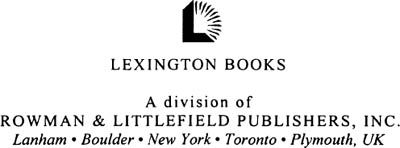
LEXINGTON BOOKS
A division of Rowman & Littlefield Publishers, Inc.
A wholly owned subsidiary of The Rowman & Littlefield Publishing Group, Inc.
4501 Forbes Boulevard, Suite 200
Lanham, MD 20706
Estover Road
Plymouth PL6 7PY
United Kingdom
Copyright 2007 by Lexington Books
All rights reserved. No part of this publication may be reproduced, stored in a retrieval system, or transmitted in any form or by any means, electronic, mechanical, photocopying, recording, or otherwise, without the prior permission of the publisher.
British Library Cataloguing in Publication Information Available
The hardback edition of this book was previously catalogued by the Library of Congress as follows:
Xu, Wu, 1969
Chinese cyber nationalism : evolution, characteristics, and implications / Xu Wu.
p. cm.
Includes bibliographical references and index.
1. InternetPolitical aspectsChina. 2. NationalismChina. I. Title.
HN740.Z9I5688 2007
320.54095102854678dc22 2006102793
ISBN-13: 978-0-7391-1817-7 (cloth : alk. paper)
ISBN-10: 0-7391-1817-X (cloth : alk. paper)
ISBN-13: 978-0-7391-1818-4 (pbk. : alk. paper)
ISBN-10: 0-7391-1818-8 (pbk. : alk. paper)
Printed in the United States of America
 The paper used in this publication meets the minimum requirements of American National Standard for Information SciencesPermanence of Paper for Printed Library Materials, ANSI/NISO Z39.481992.
The paper used in this publication meets the minimum requirements of American National Standard for Information SciencesPermanence of Paper for Printed Library Materials, ANSI/NISO Z39.481992.
To my beloved homelandChina
Contents
Preface
On 24 March 2006, I was attending the International Studies Associations (ISA) annual conference in San Diego. The topic of my poster presentation was A Chronicle of Chinese Cyber Nationalism (19942005), a brief summary of the first part of this book. During the free discussion session, a scholar stopped by my stand, stared at my posters for quite a while, and said something that has constantly popped up in my mind while writing this book. He said, China, Internet, and Nationalism, these are three red hot topics right now. And you put them altogether into one concept. What a smart idea, and what a challenging topic. Smart, maybe. But, challenging, I cant agree more.
The origin of my interest in studying Chinese nationalism-related issues can be traced back to the Tiananmen Square Incident in 1989, Beijing. As a freshman majoring in Journalism, I was half-confused and half-ignited by the historical events dramatically unfolding in front of my eyes. From the first-nights march to the Tiananmen Square on 16 April 1989, to the final showdown on 4 June 1989, I was but one tiny drop in that gigantic boiling blood stream. That night, the burning flame and the freezing chill melted every individuals fate and memory into the grand historical backdrop. On 13 September 1993, when Juan A. Samaranch, Chairman of International Olympic Committee, announced that Sydney had defeated Beijing to win the 2000 Olympic host city bid, I was an on-duty assistant editor at Xinhua (New China) News Agencys pencil-shaped headquarters in Beijing. Outraged and deeply humiliated, the Chinese government immediately issued a strongly worded nationalistic editorial to one billion disappointed Chinese people, and to the whole world. I was one of the four editors who witnessed on the spot this historical event. On 10 March 1996 when then U.S. Secretary of Defense William Perry announced the deployment of nuclear-powered aircraft carrier Nimitz to the Taiwan Strait amidst escalating tensions in the region, I was a media consultant traveling between Hong Kong and Shenzhen, just several hundred miles away from that choppy water. On 8 May 1999 when American missiles hit Chinese Embassy in Belgrade, killing three Chinese journalists, I was working in an office building not far from the American Embassy in Beijing. In the days following that incident, the American Embassy in Beijing had been besieged by angry Chinese protesters. In my mind, juxtaposed to then United States Ambassador James Sassers shocked face behind a shattered window, Shao Yunhuan, a former colleague of mine at Xinhua News Agency who died in the bombings, was smiling at me. On 1 April 2001, when I was pondering about the topic of my thesis as a first year graduate student in the United States, the breaking news of a collision between an American spy-plane and a Chinese fighter jet flooded American mass media. Chinese media and American media applied similar news framing techniques, while presenting to their audiences dramatically different pictures. The observation and thinking of this phenomenon led to my thesis, Another Collision: How Mainstream Chinese and American Media Framed the Spy-plane Collision. According to social psychologist, people cannot not communicate. However, communication doesnt always lead to understanding. The advent of Internet further complicates this communication process, especially regarding foreign policy issues. What happens in the world seems not the clash of civilizations, but the clash of perceptions, or more accurately, the clash of misperceptions. Chinese cyber nationalism, which has evolved in Chinas fast growing cyber sphere over the past decade, is both a result of and a catalyst for misperceptions.
Writing a book is like giving birth to a baby (thanks for the input from my wife and my mom). The initial conception may be miraculous, but the pregnancy and delivery process is anything but an easy journey. To somehow lessen the burden, I applied a divide and conquer strategy to this book. In brief, I divided this large project into three separate but highly related parts, each dealing with one set of questions. For example, the first part basically tried to answer the questions of who, when, where, and how. It chronicled the historical evolution of Chinese cyber nationalism over the past decade. The second part looked into the theoretical orientations of those major concepts, such as Chineseness, public sphere, and nationalism. These literature reviews focused on the research questions of what and why. The third part reported the results of a dozen or so in-depth interviews with key players of Chinese cyber nationalism movement, leading scholars on this topic, and foreign policy decision makers. This approach intended to explore the questions of so what and who cares. Overall, this book introduced a new concept, documented a segment of short yet far-reaching history, compiled a profile at both individual and collective level, and most importantly, presented a framework for scholars to digest Chinas historic return onto the world stage.
Over the past five years, many people contributed directly or indirectly to the final publication of this book. It is impossible to list them all here. But I do want to express my heartfelt gratitude to the following people. First of all, my thinking on this topic has benefited greatly from the insight and wisdom of my doctoral committee members and professors in the College of Journalism and Communications at University of Florida. Among them, Dr. Marilyn Roberts, my committee chair, has been the person I felt most indebted to. She has been my mentor, editor, cheerleader, and friend in my exploratory journey. When I felt lost, she was always there to offer me guidance. When I needed support, she was always available to give me the much-needed encouragement and assistance. Dr. Dennis Jett, in spite of his busy teaching and administrative schedule, shed invaluable light on the conceptualization of this project through his humorous and insightful instruction. Dr. Lynda L. Kaid has been my role model and motivational source throughout the research process. Her comments and criticisms brought my understanding of social science research to a higher level. Dr. Spiro Kiousis offered me from time to time indispensable suggestions on the research design and data analysis. Our discussions and cooperation have been pleasant, inspiring, and fruitful. Dr. Mary Ann Ferguson was my first mentor who directed and supported my first voyages in the realm of mass communication research. Her generous assistance, both spiritually and financially, helped me overcome the obstacles in the early stage of my graduate study.

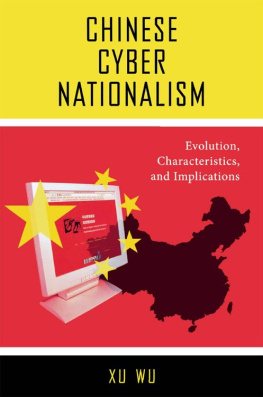
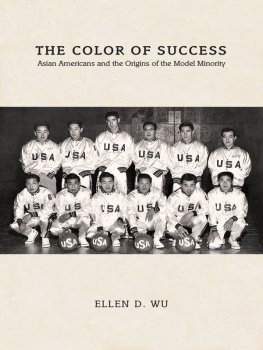



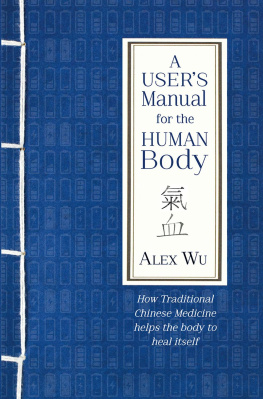
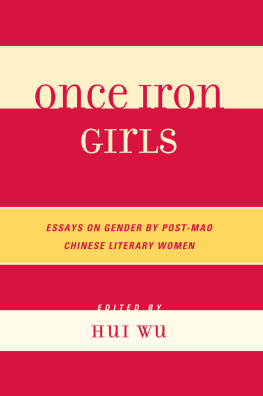


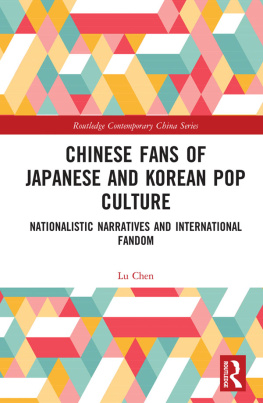
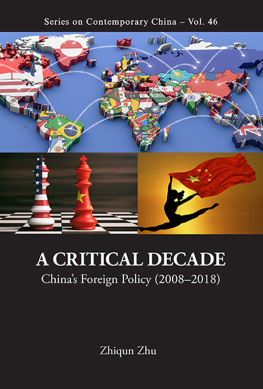
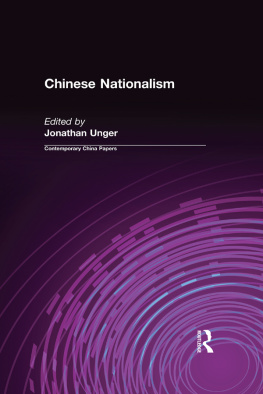
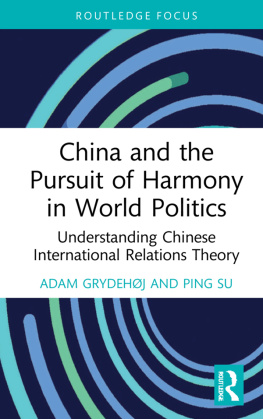
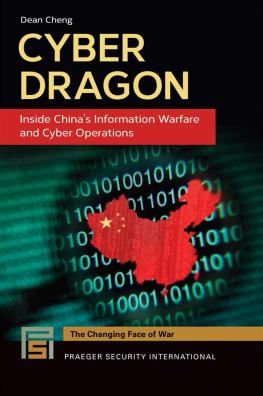
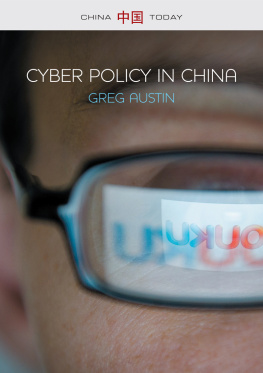

 The paper used in this publication meets the minimum requirements of American National Standard for Information SciencesPermanence of Paper for Printed Library Materials, ANSI/NISO Z39.481992.
The paper used in this publication meets the minimum requirements of American National Standard for Information SciencesPermanence of Paper for Printed Library Materials, ANSI/NISO Z39.481992.